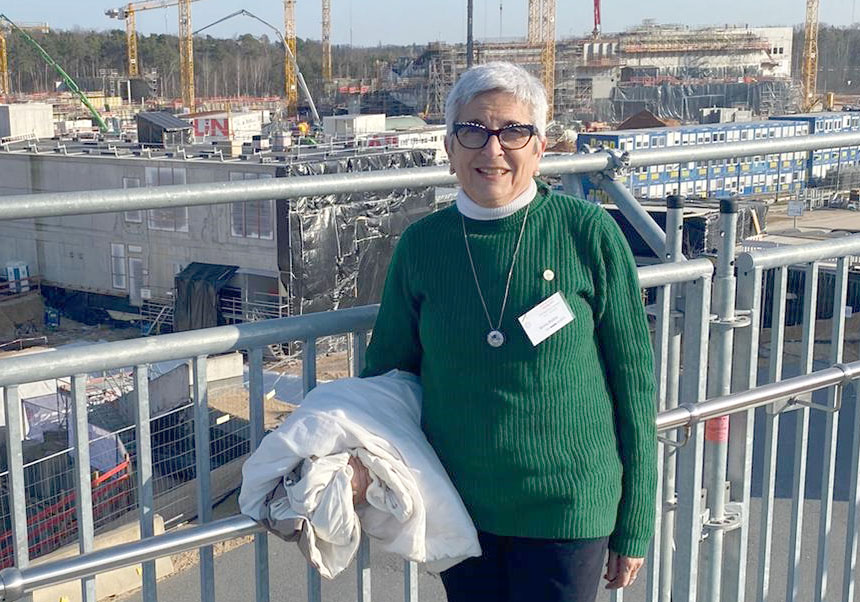IFIC researcher Berta Rubio chairs the international institution of Structure, Astrophysics and Nuclear Reactions NUSTAR
- Scientific Culture and Innovation Unit
- May 3rd, 2023

The researcher Berta Rubio Barroso, from the Institute of Corpuscular Physics (IFIC), a joint centre of the Spanish National Research Council and the University of Valencia, has been elected president of the NUSTAR Council, an institution that represents the international community of Structure, Astrophysics and Nuclear Reactions. This, with 700 members and 170 institutions, is a pillar of FAIR, the future facility for nuclear physics research that is being built in Darmstadt (Germany).
Berta Rubio had already been serving as co-chair of NUSTAR since 2020. FAIR (Facility for Antiproton and Ion Research in Europe) has four ‘pillars’ or large experimental blocks. One of them is NUSTAR (Nuclear Structure, Astrophysics and Reactions, whose work focuses on the use of beams of radioactive species, separated and identified by the Super Fragment Separator (Super-FRS). This separator is the central instrument of all its experiments.
In these experiments, reactions with radioactive beams, properties of exotic nuclei (those that have a remarkably different number of neutrons or protons than nuclei naturally found on Earth) and their implications for astrophysical processes such as supernovae explosions or neutron star mergers are studied. Places where chemical elements heavier than iron are formed.
The most intense radioactive nuclei beams in the world will be produced at FAIR. FAIR plans to start operations in 2027, so this period of presidency is very important. During this time, it is planned to sign agreements between the countries to fine-tune the experiments at NUSTAR-FAIR, install the instruments that are being fine-tuned in the consortium member laboratories, as well as make decisions on the first measurements to be carried out.
In NUSTAR there is an important Spanish contribution. Several experiments have been developed and tested at other nuclear physics facilities, waiting for FAIR to go live. It is worth highlighting DTAS, a detector to measure beta decay, built by the IFIC’s Gamma and Neutron Spectrometry group. DTAS is finished and its implementation is carried out in the RIKEN laboratory (Japan) and in FAIR phase 0, last year. This spectrometer, with a higher efficiency than those that have been used previously, has been used to measure beta decays with very low productions. Once FAIR is up and running, more exotic cores can be measured.
Berta Rubio Barroso is a CSIC Research Professor at the IFIC. She studied Physics at the Complutense University of Madrid and completed her PhD at the KFA Nuclear Research Centre in Jülich (Germany). After returning to Germany with a postdoctoral stay, she joined the Institute of Corpuscular Physics, where she formed the Gamma and Neutron Spectroscopy group with José Luis Taín.
Rubio has led experiments to study exotic nuclei in prestigious laboratories such as ISOLDE (CERN), GSI (Germany), GANIL (France) and RIKEN (Japan). She has more than 200 published scientific papers and has directed 12 doctoral theses. She has been a scientific advisor to various laboratories, including GANIL, ISOLDE (CERN), NSCL (National Superconducting Laboratory, USA) and the Canfranc Underground Laboratory.
More information:
https://fair-center.eu/user/experiments/nustar/nustar-collaboration/council
















